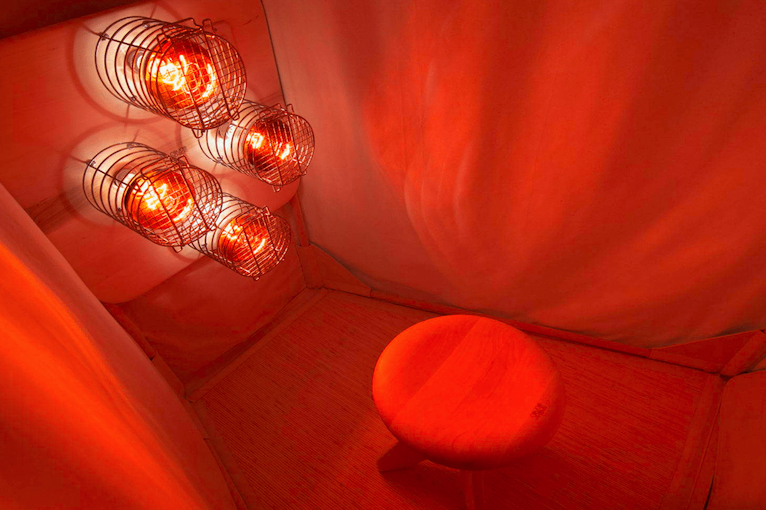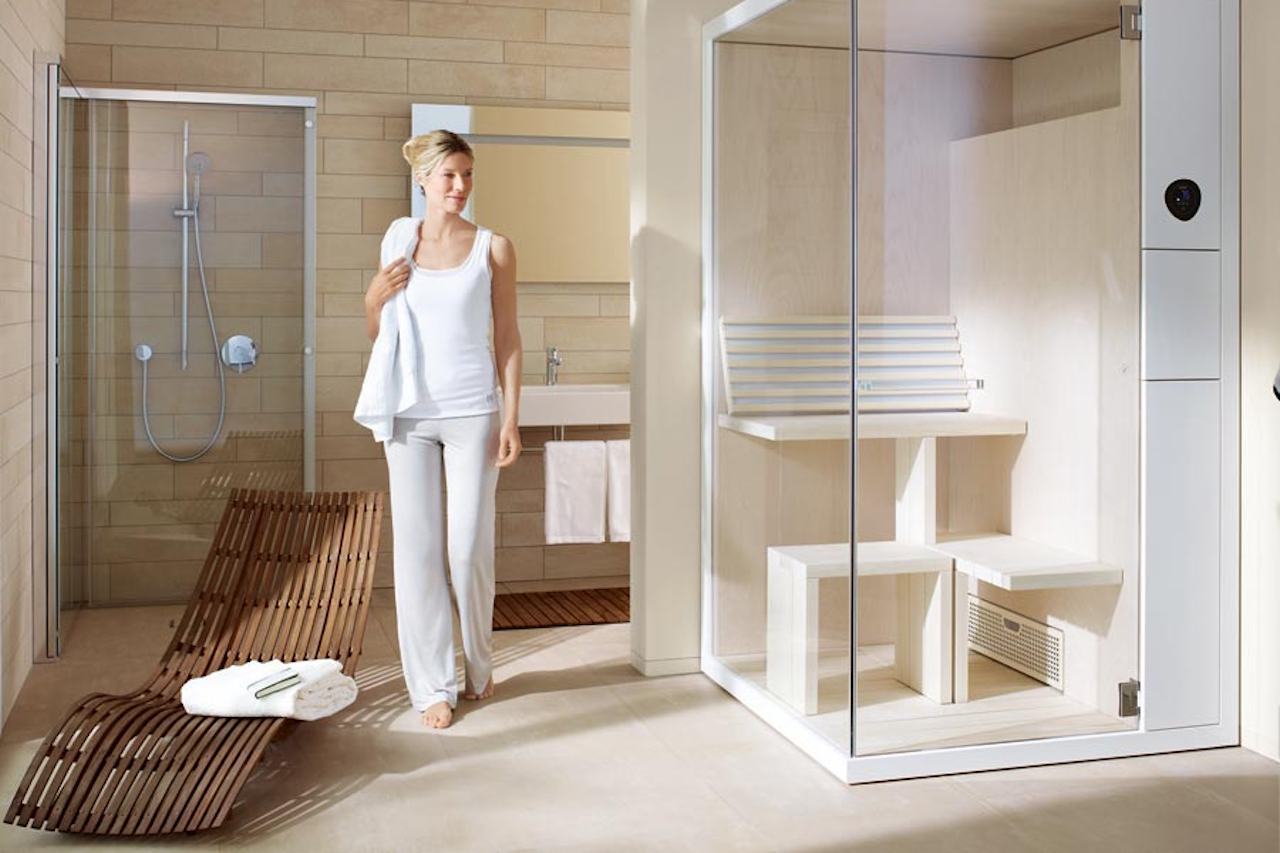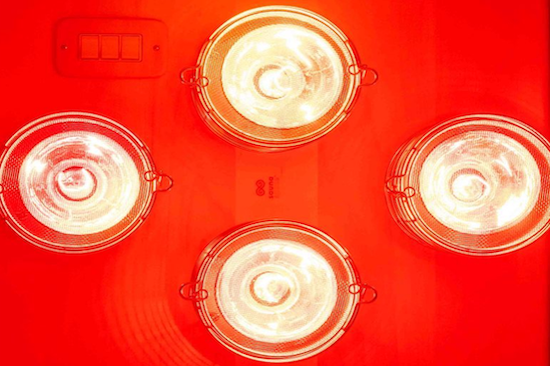- HOME
- Infrared Sauna Insights
- Red Light Therapy at Home
Is Red Light Therapy At Home Effective?
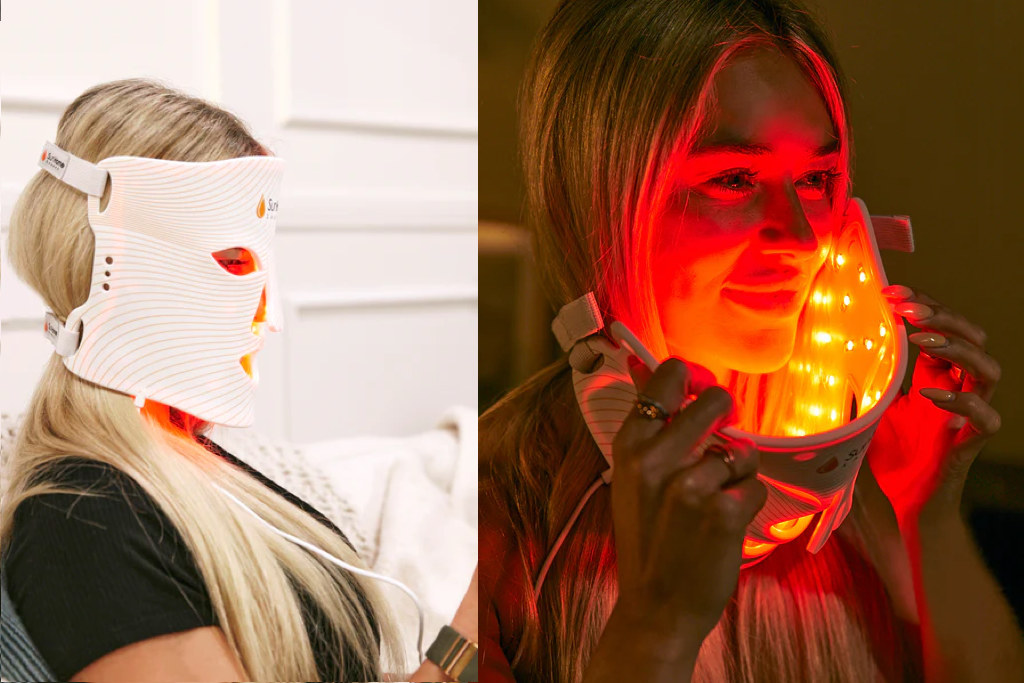
Considering red light therapy for its numerous health and wellness benefits? You have two main options to choose from: professional treatments or at-home devices. Each has its own unique approach to applying the therapeutic power of red light, tailored to different needs, preferences and circumstances.
This article will guide you in making this choice and goes into more detail about the options for applying red light therapy at home.
professional treatment or at home?
Professional Red Light Therapy
Professional red light therapy is available at dermatology clinics, wellness spas and specialty therapy centers. These facilities typically offer higher intensity treatments under the guidance of trained professionals.
Sessions can vary in cost, ranging from $15 to $100, and are designed to meet specific needs, from skin conditions to deep tissue therapy. When choosing professional red light therapy, it is critical to research the provider's credibility and expected regimen to achieve your wellness goals.
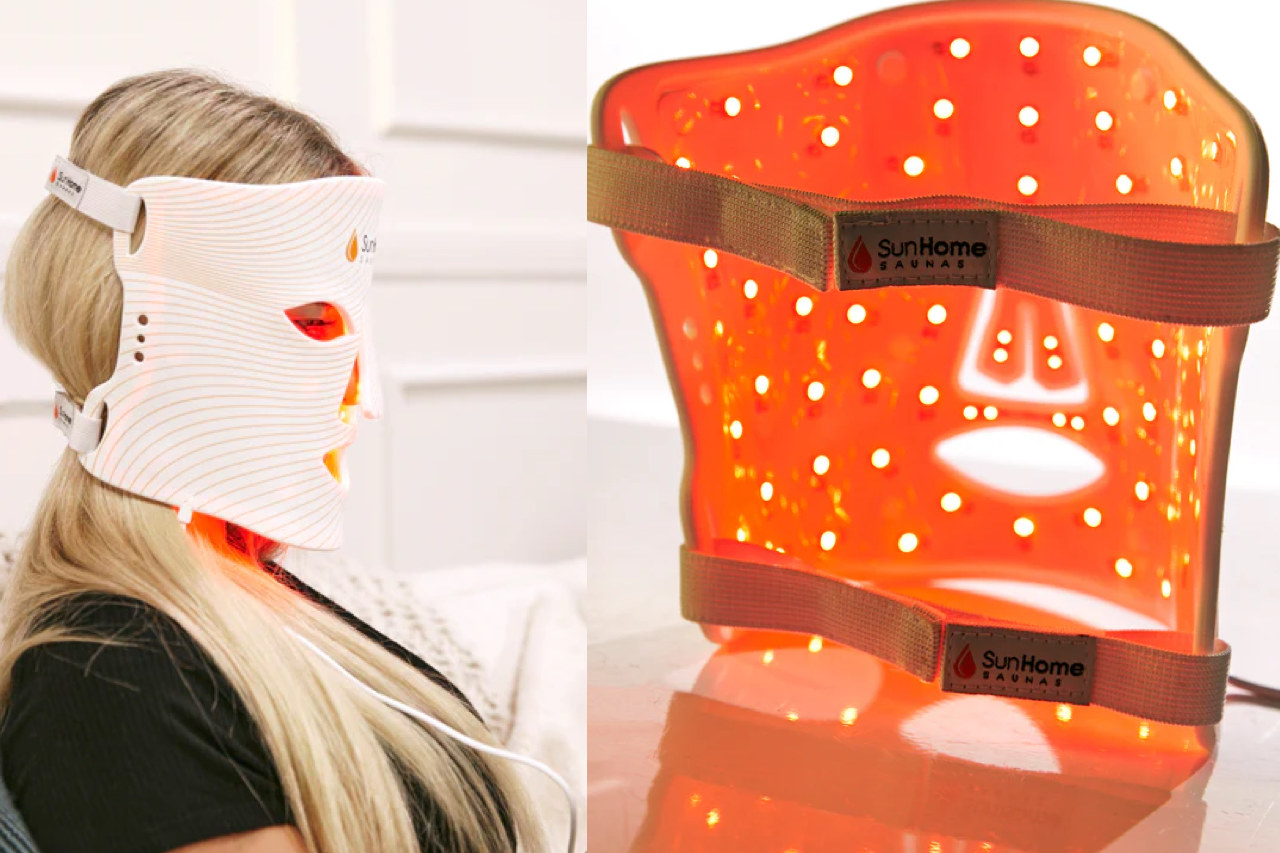
Sun Home Saunas Radiant™ Face Mask
Home Red Light Therapy
Red light therapy devices designed for home use bring the dual benefits of convenience and adaptability, enabling you to integrate this wellness practice into your daily routine from the comfort of your living space.
Although these home devices might not reach the same intensity levels as their professional counterparts, they are still effective, particularly with regular and long-term application. For those who own an infrared sauna, incorporating red light therapy can enhance your wellness regimen by merging the distinct health benefits of both therapies, offering a synergistic approach to well-being.
Prices for home devices range from $100 to $1,500+, reflecting the diversity of device types from wearable gadgets to full-body panels. It's a matter of weighing your budget, and assessing your goals.
Safety first
Safety and efficacy are of utmost importance when starting red light therapy. Professional institutions typically ensure safety through regulated treatment protocols and expert supervision. Although home use devices are generally safe, users should adhere to guidelines and usage instructions to avoid overexposure and ensure effectiveness.
Regardless of the path chosen, consulting with a healthcare professional before beginning RLT can provide personalized advice and ensure that the therapy meets your health goals.
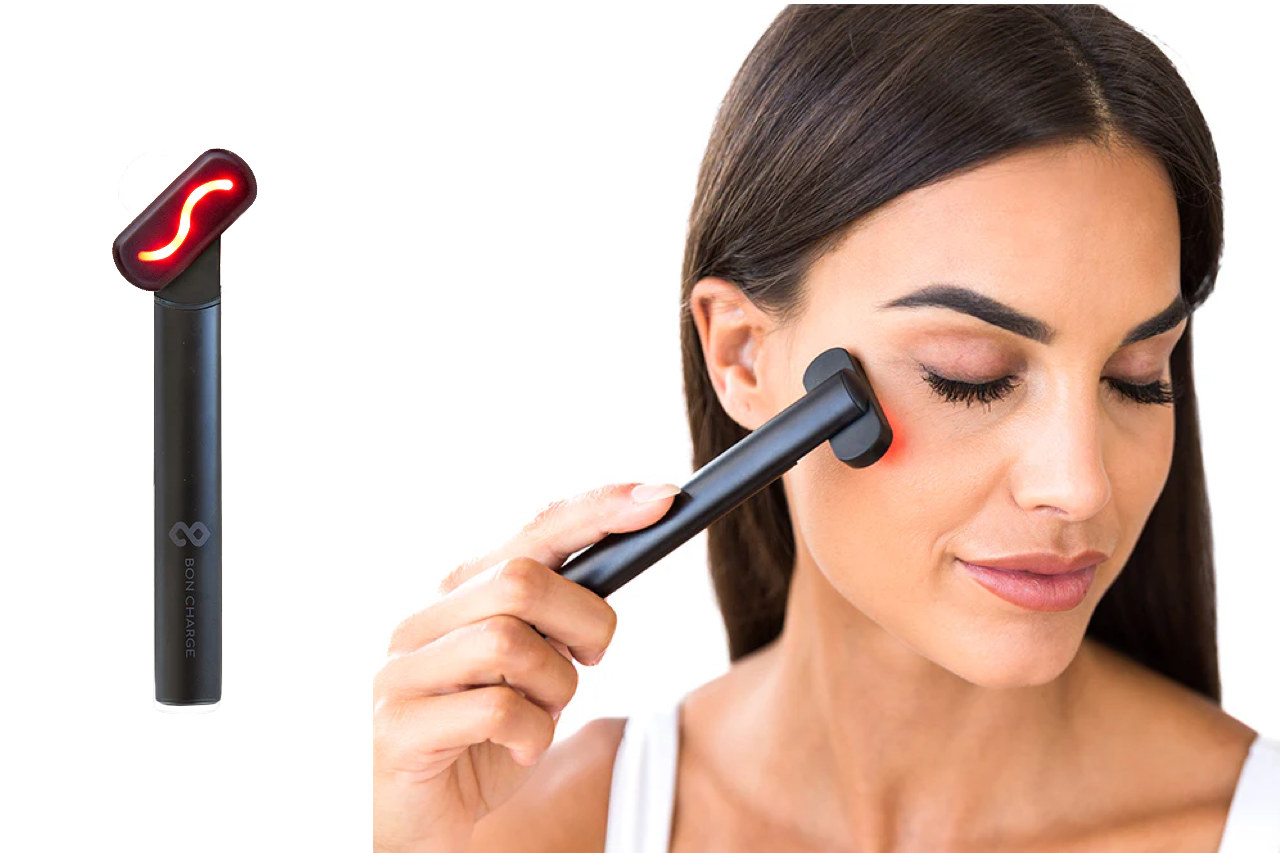
Bon Charge Red Light Face Wand (get 15% discount using our code: SAUNACE15)
What to decide?
Deciding between clinic treatments and home red light therapy devices involves more than just comparing costs. Clinic sessions, while more expensive, offer higher-intensity light that can penetrate deeper, potentially providing quicker and more pronounced effects for conditions like deep tissue injuries or severe skin issues. This intensity, guided by professionals, can tailor treatments specifically to your needs, offering a level of customization that home devices may not match.
On the other hand, home devices, with their lower intensity, are designed for safety and ease of use, making them suitable for regular, maintenance treatments. While they might take longer to show results, their convenience allows for consistent, daily use, which can be beneficial for long-term management of chronic conditions or for ongoing skin care routines.
The study 'Photobiomodulation: Lasers versus Light-emitting Diodes?' [1] sheds light on the usefulness of home therapy. This study explored the potential of LED-based photobiomodulation therapy for home use, highlighting that while LEDs offer lower intensity compared to clinical lasers, they provide a safe, easy-to-use option for consistent, daily treatments.
This makes LED devices an attractive choice for people looking for convenient, long-lasting therapy for skin care or chronic condition management right from home.
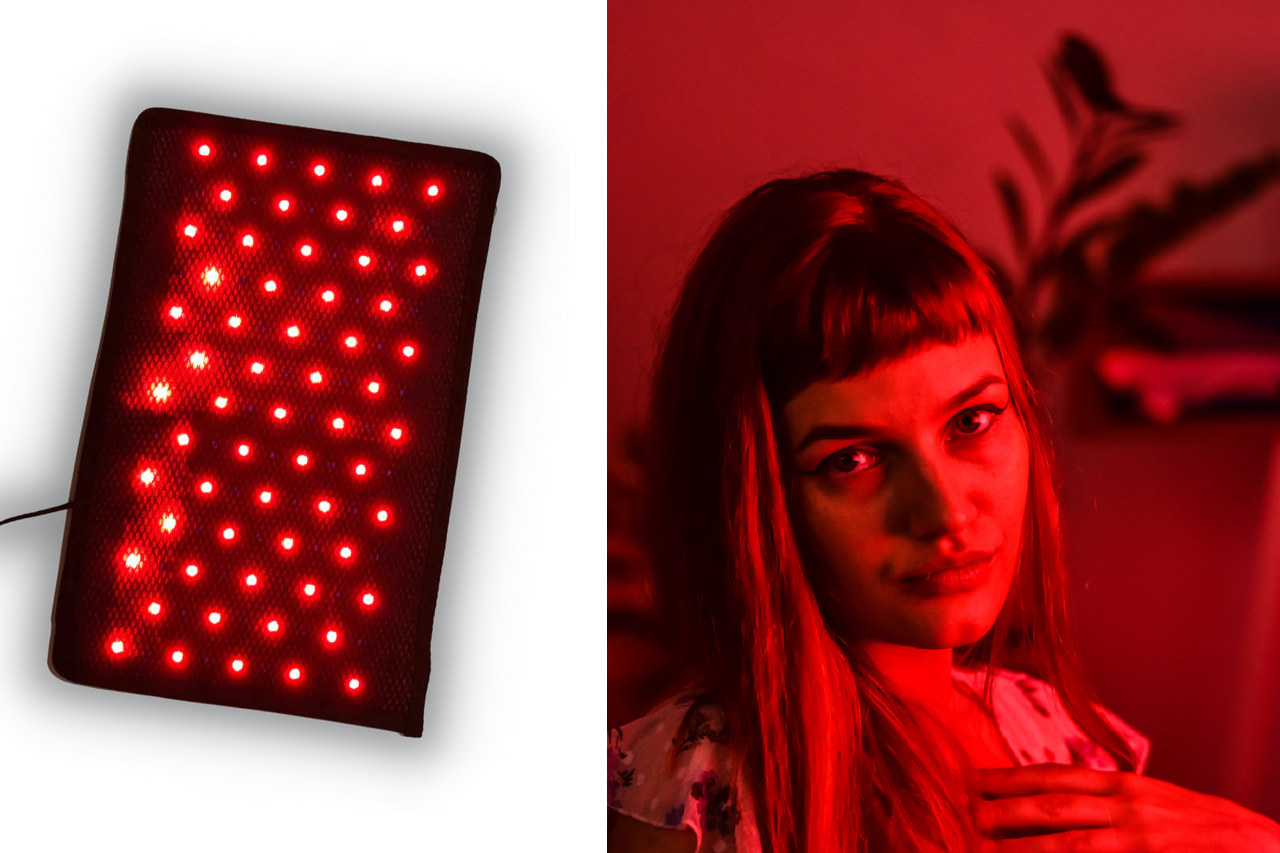
Starting Your Red Light
Therapy at home
RED LIGHT THERAPY DEVICES
There are a variety of red light therapy devices on the market for personal use:
- Handheld devices are typically designed for targeted treatment and are often used for anti-aging and acne care.
- Masks provide hands-free treatment for facial rejuvenation.
- There are also wearable devices adapting to the contours of the body.These devices are optimized for targeted pain relief and muscle recovery, adapting to the contours of the body.
- Small panels, which you can easily place on a table, for example, while you are working.
- Full-body panels cover a broader area, suitable for overall skin health and muscle recovery.
- Mats give you full-body red light therapy while you lie comfortably. All you need is a sturdy surface.
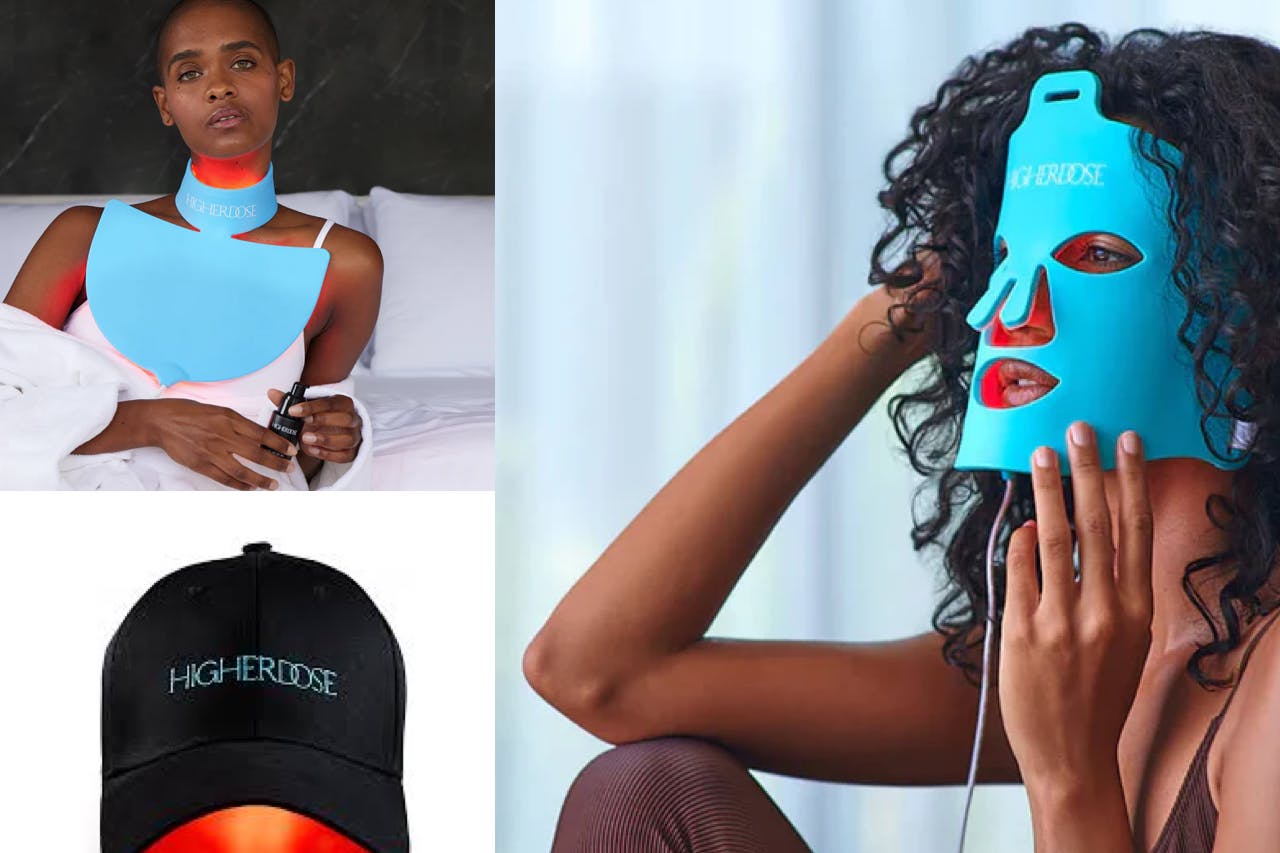
HigherDose Red Light Devices - Face Mask, Neck Enhancer and Hat
SAFE USE GUIDELINES
Before starting red light therapy or any new treatment regimen, it's advisable to consult with a healthcare professional, particularly if you have underlying health conditions or concerns. Their guidance can help ensure that the therapy is safe and suitable for your specific needs. [2]
Although the therapy generally is considered safe, it's crucial to start with shorter sessions and gradually increase duration as tolerated. To maximize the therapy's effectiveness, use consistently over time, clean and maintain the device according to the manufacturer's instructions, and combine the therapy with a healthy lifestyle for the best results.
Duration: The length of a red light therapy session can vary. But usually, sessions last between 10 and 20 minutes. Depending on the power of the device and the specific condition being treated, the frequency of use can be from a few times a week to daily.
Experience: During a session, you may expect a warming sensation, as the red light penetrates the skin to stimulate cellular activity.
Common safety concerns with red light therapy: Avoid direct eye exposure to the light and stick to the recommended usage times to prevent skin irritation. It’s wise to use protective goggles too, specifically designed to filter out the red and near-infrared wavelengths. Alternatively you might want to wear blackout goggles, particularly when treating areas other than the eyes to ward off strain or damage.

Lifepro AllevaRed Light Therapy Belt
optimizing red light therapy
Furthermore, you might want to optimize the effects of red light therapy. Here are some combinations:
Exercise: Integrate red light therapy with regular exercise routines. This can reduce muscle fatigue, prevent injuries, and enhance performance.
Skin Care Treatment: Use facials and other skincare treatments to repair sun-damaged skin and reduce signs of aging.
Self-care Treatment: Combine the therapy with routines that improve sleep hygiene and mood can correct your biological rhythms and fight inflammation. You might also want to introduce an anti-inflammatory diet. This contributes to overall well-being and potentially reduces the impact of chronic diseases.
Infrared Sauna: Red light therapy can be integrated with infrared sauna sessions; a complementary approach to light therapy. Infrared saunas, which use heat, work differently from red light therapy and may also by itself support skin health, provide pain relief, and promote relaxation.
The benefits of combining infrared sauna with red light therapy include anti-inflammatory effects, better sleep, stimulation of detox, and improved cellular function. It can also result in reduced muscle fatigue, pain relief, and skin rejuvenation.
Other Combined Therapies: There's also a possibility to combine red light therapy with halotherapy, also known as salt therapy, during sauna sessions. Halotherapy can enhance respiratory health and skin conditions, adding another layer of benefit to the sauna and red light combination.
By combining this innovative therapy with practices such as infrared saunas and lifestyle modifications, it is possible to tap into the potential for improved skin health, pain relief and overall cellular rejuvenation.
And this is just the beginning. Explore our website, find carefully selected red light therapy devices, including masks and full-body solutions. We guide you through integrating these tools with complementary wellness solutions, like infrared sauna sessions, to maximize your health benefits.
Saunace is supported by its audience. When you purchase through links on our website, we may earn an affiliate commission. Learn more about our affiliate policies here.

Sam Everhart
References
1. Vladimir Heiskanen and Michael R. Hamblin, Photobiomodulation: Lasers Versus Light-emitting Diodes? PubMed, https://www.ncbi.nlm.nih.gov/pmc/articles/PMC6091542/
2. Cleveland Clinic, Red Light Therapy, https://my.clevelandclinic.org/health/articles/22114-red-light-therapy
Enjoyed this? Explore more benefits or check out other related topics here
